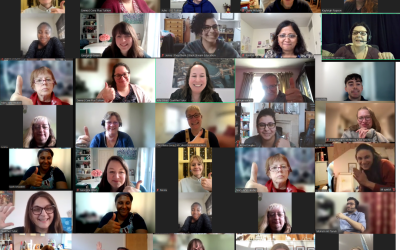SEND Series with Jack #3: Pathologising
When we define a problem as a disease, we often act as if a diagnosis were a solution: paste on a label and then end the discussion as if we’ve accomplished something. But then nothing ever changes.*
I think we see the effects of this in the land of SEND more often than in other places. A child displays a catalogue of behaviours that are deemed undesirable in context. One of two things usually follows; either the child is labelled naughty, lazy and/or stupid, or the child is flagged for referral and (often after several years) receives a diagnosis.
Stupid, naughty or lazy?
For the child in this camp, life becomes difficult after their problems are reduced down to a label. Children in this category find themselves sitting at the “lowest” table or moved to the “bottom” set. Some of you may find this resonates with you as you have experience of this yourself.
We become the stories we tell ourselves.
If we are receiving all this external validation of the idea that we are naughty/stupid/lazy, how could we possibly believe anything else? Especially as a child, hardwired for learning about the world, from the world.
The Official Diagnosis
The child with the diagnosis faces a similar but more official set of labels. During the course of being identified as a diagnosable child, professionals and careers will have written and spoken about the ways in which the child is behind their peers, developmentally delayed, struggling etc. The child will undergo multiple tests, with multiple strangers, and they will eventually be given a label. If they can google their label, they will be met with a list of ways in which they fall outside of what is normal. This child risks receiving the message, affirmed by professionals, that they aren’t enough.
So, Jack, are you saying no labels ever?
No, dear reader, of course not.
But Jack, you just spent a few hundred words telling me that labels are bad.
Yes, in some contexts. Labels aren’t inherently pathologising.
Here’s what I think.
Labels are useful for people with them to access the support they are entitled to.
Labels are useful for people with them, to help them find other people who may be experiencing similar challenges to them.
Labels are useful as a starting point for people with them to understand what kinds of behaviours, challenges and strengths the student they work with may experience/exhibit.
But, as noted by the quote at the top of the article, if the label is the only thing we see, we run the risk of viewing the label as a solution, when it clearly isn’t.
The label is only the beginning.
The ongoing work, which is difficult and requires lots of learning and unlearning, is to keep having conversations about what the specific needs are of the specific individual, in the specific context that you find them.
_________________________________
*Chapter 6: Building a Culture of Consent. Easton, D. and Hardy, J.W. (2017). The Ethical Slut : a practical guide to polyamory, open relationships and other adventures. 3rd ed. California: Ten Speed Press.
Recommended Posts
The Postgraduate Certificate That Puts Tutors on Equal Footing with Teachers
The Postgraduate Certificate That Puts Tutors on Equal Footing with Teachers For too long, professional tutoring has lacked the recognition and status it deserves. But now, with the introduction of a Postgraduate Certificate in Professional Tutoring (PGCert), tutors...
How to Become a Tutor in the UK
This guide will walk you through everything you need to know about becoming a tutor, including qualifications, business setup, marketing strategies, and professional development.
Qualified Tutor Standards for Excellence
Keeping students safe is the highest priority. Tutors must be vigilant and attentive to even the smallest signs that could indicate a safeguarding concern. Every interaction, whether in-person or online, must prioritise student welfare.




0 Comments